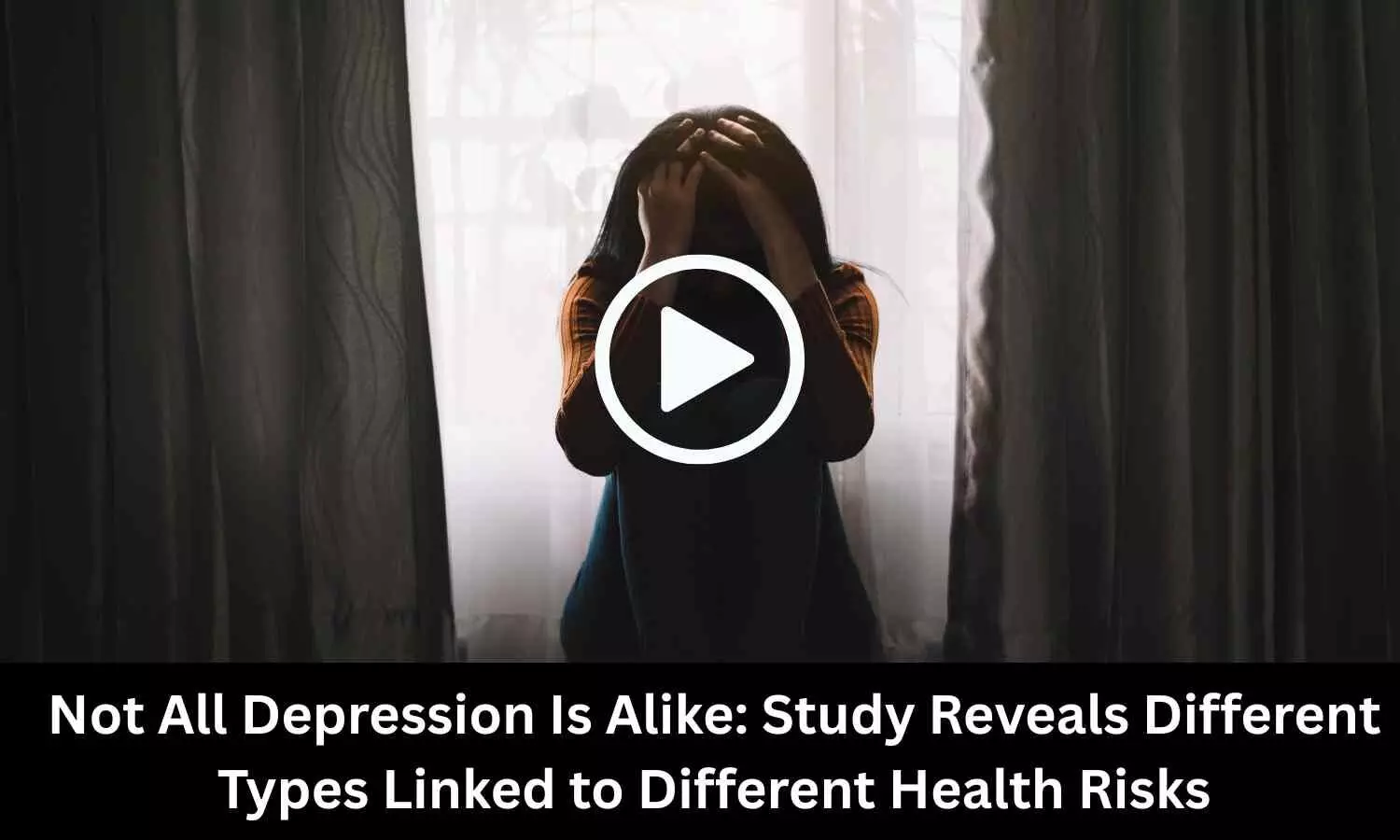Not All Depression Is Alike: Study Reveals Different Types Linked to Different Health Risks
- byDoctor News Daily Team
- 15 October, 2025
- 0 Comments
- 0 Mins

A new study presented at the European College of Neuropsychopharmacology (ECNP) Congress in Amsterdam and based on data from the Netherlands Epidemiology of Obesity (NEO) Study, reveals that not all depression is alike when it comes to health risks. The findings show that specific types ofdepressionare associated with different long-term risks of developingcardiometabolic diseases, a significant advancement in our understanding of the depression-metabolism connection. It has long been known that depression can increase the risk ofmetabolic disorders, but researchers have now found that the type of depressive symptoms matters. The research team followed 5,794 adults over a period of seven years, all of whom were free fromcardiovascular diseaseanddiabetesat the beginning of the study. Each participant completed detailed questionnaires assessing depressive symptoms, allowing scientists to categorize them into two primary profiles: those with “melancholic” symptoms and those with “atypical/energy-related” symptoms. Melancholic depression is characterized by classic symptoms such as early morning awakening and loss of appetite. Atypical or energy-related depression, on the other hand, includes fatigue, excessive sleep, and increased appetite. These symptom profiles were not just academic distinctions, they predicted different disease outcomes over time. According to the findings, individuals with atypical/energy-related depressive symptoms were approximately 2.7 times more likely to develop type 2 diabetes than those without depression, but did not show an increased risk of cardiovascular disease. Conversely, those with melancholic symptoms had a 1.5 times higher risk of developing cardiovascular disease, such as stroke or heart attack, but no increased risk for type 2 diabetes. Lead researcher Dr Yuri Milaneschi (Amsterdam UNC) said We already knew that not all depressions are the same, but this means that we may need to consider how the type of depression someone has impacts different areas of their physical health. It very much pushes us towards the idea of precision psychiatry, the idea that we need to look for physical associations with mental health profiles, so that we can better treat mental illness. To treat sufferers individually”. Reference:https://www.ecnp.eu/congress2025/
Disclaimer: This website is designed for healthcare professionals and serves solely for informational purposes.
The content provided should not be interpreted as medical advice, diagnosis, treatment recommendations, prescriptions, or endorsements of specific medical practices. It is not a replacement for professional medical consultation or the expertise of a licensed healthcare provider.
Given the ever-evolving nature of medical science, we strive to keep our information accurate and up to date. However, we do not guarantee the completeness or accuracy of the content.
If you come across any inconsistencies, please reach out to us at
admin@doctornewsdaily.com.
We do not support or endorse medical opinions, treatments, or recommendations that contradict the advice of qualified healthcare professionals.
By using this website, you agree to our
Terms of Use,
Privacy Policy, and
Advertisement Policy.
For further details, please review our
Full Disclaimer.
Recent News
BFUHS notifies on round 5 nursing admissions, deta...
- 24 October, 2025
24-year-old Rajasthan MBBS student goes missing in...
- 24 October, 2025
TCT Conference 2025: Here are Top 10 Global Leader...
- 24 October, 2025
Lupin unveils authorized generic version of Ravict...
- 24 October, 2025
Daily Newsletter
Get all the top stories from Blogs to keep track.


0 Comments
Post a comment
No comments yet. Be the first to comment!